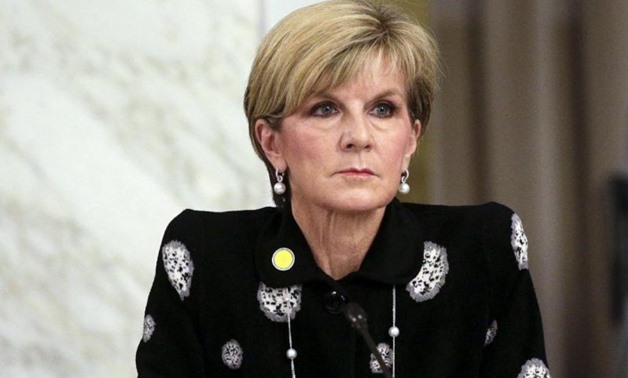
Australian Foreign Minister, Julie Bishop looks on during a ministerial meeting regarding the Islamic State group in Rome, Italy, February 2, 2016. REUTERS/Max Rossi
SYDNEY - 14 November 2017: Australia said on Tuesday it will introduce reforms by the end of the year to combat foreign interference and covert political influence, which could pose a threat to the economy and political system.
The decision to improve safeguards follows a review of Australia's espionage and foreign interference laws and will include legislation to ban foreign political donations, Attorney-General George Brandis told Parliament.
"Espionage and covert foreign interference can cause immense harm to our national sovereignty, to the safety of our people, to our economic prosperity, and to the very integrity of Australian democracy," Brandis said.
Policies modeled in part on the U.S. Foreign Agents Registration Act, requiring individuals or institutions to make a declaration if acting on behalf of a foreign power to influence the political processes, would also be introduced, he said.
While Brandis did not mention any countries targeted by the legislation, there has been growing concern about China extending its influence.
In June, Australian Broadcasting Corporation and Fairfax Media, publisher of the Sydney Morning Herald and The Age newspapers, reported there had been a concerted campaign by China and its proxies to "infiltrate" the Australian political process and institutions to promote their interests.
China dismissed the accusation as "totally unfounded and irresponsible".
This week, one of Australia's largest independent publishers said it decided to delay the publication of a book that alleges widespread Chinese government influence in Australian institutions due to legal concerns.

Comments
Leave a Comment